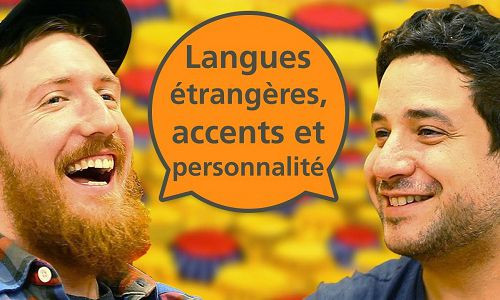5 learning secrets of someone who is fluent in 11 languages
Fluent in between nine and eleven languages, Luca Lampariello and Matthew Youlden have come up with five tips for learning Spanish, as well as any other language.
Luca Lampariello is Italian and speaks 11 languages, including English, Russian, Mandarin, and Japanese. Matthew Youlden is American and can switch between 9 languages with ease and understands 12.
 |
| Matthew and Luca (from left to right) can comfortably sit and talk to each other in many languages, switching flexibly. Photo: Babel. |
After learning Spanish, the two language "prodigies" have drawn out 5 secrets to learning this language, which can also be applied to learning any other language.
Link that language to your life
Don’t isolate language learning from the rest of your life. Learning a language isn’t just about learning it, as this can quickly become frustrating. Instead, think of Spanish or any other language as a new way to experience everything in life. You can change the language on your computer to the language you’re learning, watch movies and TV shows in that language, read about your favorite celebrities, or research the culture and history of the country you’re learning the language from. Learning a language becomes a natural reflex instead of a task. Remember that language is a means. It’s not an end in itself.
Talk to native speakers
The best way to incorporate a foreign language into your daily life is to spend time talking to native speakers. If any of your friends speak the language, persuade them to speak it with you.
Learning goes hand in hand with practice, and speaking is the best way to achieve that. Once you have reached a basic level of conversation, find a language club to practice with.
Luca put this to use and said: "A few of my parents' close friends who speak Spanish often come over for dinner every week and I take the opportunity to practice the language with them. If you have the opportunity to speak multiple languages every day, you will never forget it."
"All roads lead to Rome"
Spanish, French, Italian, Portuguese and Romanian all share the same Latin roots, and have similar vocabulary and grammar like siblings. This makes learning Spanish quite easy for an Italian like Luca, but he still maintains and focuses on practicing Spanish every day.
English speakers learning Spanish are at a disadvantage because English is of Anglo-Saxon origin, belonging to the Germanic language family. However, English and Spanish have a lot in common. Half of English's vocabulary comes from French and Latin, so although it is not a blood brother of Spanish, English can still be considered a cousin of this language. For example, you can learn all four words "democratisation", "democratización", "démocratisation", "democratizzazione" from four languages at once.
Imitation game
The native accent is the final obstacle. To pick up the intonation, you need to listen carefully and imitate what you hear. Think of yourself as an actor. You are not just listening to the lines, but getting into character, trying to imitate the native accent. In this way, unfamiliar sounds become familiar. At first, this "acting" can be a bit silly, and it can be annoying to others because of the accent. But once you practice enough to pronounce correctly, you will truly be in character when speaking the foreign language.
Say it now
The above tips can only be effective if you start immediately and not wait until tomorrow. Starting gradually, for example, spending 10 minutes a day is also a good choice. Learn little by little, regularly every day with the above tips, you will quickly turn any foreign language into your own language.
According to VNexpress






